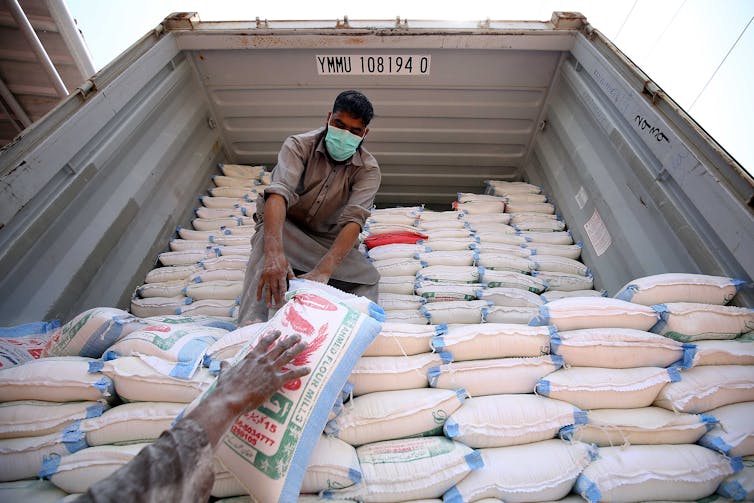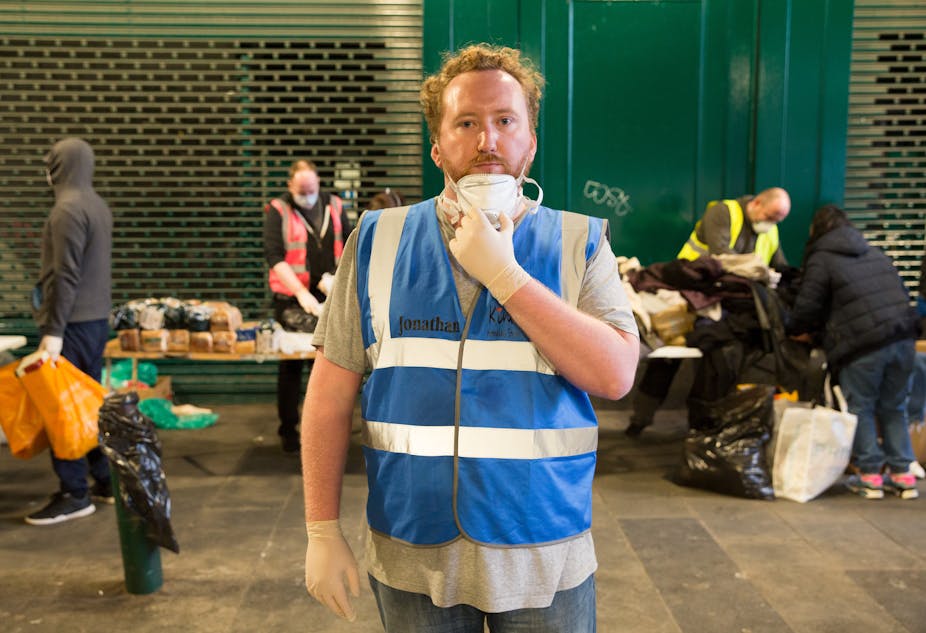In speeches, commentaries and conversations about the coronavirus pandemic, we keep hearing war-like metaphors being deployed. It happens explicitly (“we are at war”, “blitz spirit”, “war cabinet”) and implicitly (“threat”, “invisible enemy”, “frontline”, “duty”).
This, after all, helps project an interpretation of the extraordinary reality facing us which is readily understandable. It helps convey a sense of exceptional mobilisation and offers to decision-makers an opportunity to rise up as heroic commanders.
It is also true that the language of biomedicine and epidemiology is already heavily militarised. We “battle” a virus, and our body has “defence” mechanisms against the pathogens that “invade” it.
But the coronavirus crisis is an international, pan-human challenge. It certainly requires exceptional collective mobilisation, but no real weapons, no intentional killing of fellow human beings, and no casting of people as dehumanised others. Militarised language is unnecessary.
Explaining and encouraging community resilience and togetherness in the face of adversity by evoking images of war conjures up distorted myths and narratives of heroic past national glory and military campaigns. This might function as a cognitive shortcut to evoke collective effort, but the narrow narratives it reproduces are open to exploitation by opportunistic politicians.
We could just as much favour analysis of the evolving situation in calmer scientific and medical terms. You don’t need ideas about war to tell a story of the human race naturally coming together when faced by a common danger.
Indeed, one striking phenomenon has been the huge proliferation of organic networks of mutual aid. From street-level up, and often with the help of social media, a huge number of people have been organising solidarity networks to help each other – and especially the most vulnerable.
People have come together and organised within neighbourhoods, cities and regions – but also across nations – to help each other without needing to call it a “war” or military “duty”. The language of mutual aid and solidarity works just as well.
Ideological appropriations
Anyone interested in political theory and ideologies must be watching all this with some intellectual curiosity. Different perspectives come with different assumptions about human nature, the role of the state compared to other institutions, and so on.
War is the business of the state par excellence. Some argue it was war-making that actually made the modern state. Framing the response to COVID-19 in military language will reinforce such statist thinking – and the statist project itself. It will reinforce the state and its power.
It is of course true that, given the political architecture in place as the crisis hit, states do hold much organisational capacity and power. They have a crucial role to play in tackling the current emergency. But other political entities matter too, from spontaneous bottom-up networks and municipalities to regional organisations and the World Health Organization. Military metaphors, however, either conceal their contributions or co-opt them by describing their efforts in military terms.

One could just as much pitch the crisis as being about medicine, health workers and human communities across the globe. One could analyse events around particular socio-economic classes, such as supermarket workers, delivery workers and essential equipment manufacturers, in every country affected by the virus. Looking at socio-economic classes across borders could also set up more searching discussions about homelessness, refugee camps, working conditions and universal healthcare.
An analysis based on class or social justice is just as appropriate as one revolving around military metaphors. But instead of reinforcing statist and military thinking, it would explain the crisis in anarchist, Marxist, feminist, or liberal internationalist terms, for example.
Normalising war
Language matters. It helps frame particular stories, interpretations and conversations while at the same time closing off alternative perspectives. It reinforces particular theories about how the world works, and sidelines others.
Framing political issues in the language of war both illustrates the prevalence of militarised thinking and further enables it. The more we use military language, the more we normalise the mobilisation of the military and the more we entrench military hierarchies. When the next international crisis arrives, rather than examining the deeper structural problems that caused them, we jump again to heroic narratives of national militarised mobilisation.
Who benefits from this? Politicians can project an image of decisive generals protecting their lot. Agents of state coercion can project themselves as dutiful and robust but popular administrators of the public will. They can then mobilise this (typically masculine) brand for their own political agenda later on. If you are Trump, perhaps you can even egg up some anti-Chinese patriotism.
Missed is the opportunity to develop a more nuanced understanding of human capabilities not restricted to national boundaries. Yet this international solidarity and these pan-human capabilities might be what we need to tackle other problems of international scale, such as the climate crisis.
When a crisis of global proportions gives rise to organic expressions of mutual aid, our imagination has grown so restricted that we find ourselves framing the challenge in statist and national terms. Instead of seeing the whole of humanity rising to the challenge together and observing the multi-layered outpouring of mutual aid, our imagination is restricted into encasing this in military language.
But that does not capture the full story. The human race will come out of COVID wiser if it does not frame its understanding of its response to it in narrow military language.

